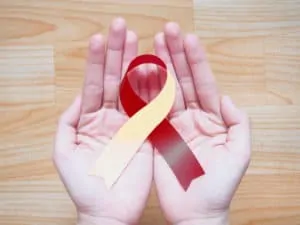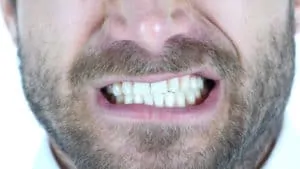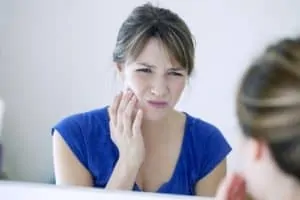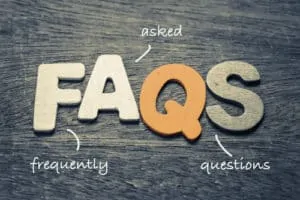Preventive Dentistry

Appointment Confirmation
Many dental offices will send a pre-appointment reminder to you via text or email or call you directly to confirm your appointment. However, if your dental office doesn’t provide this service, you should confirm your appointment 24-hours in advance. These reminders not only help keep your appointment on schedule, so your dental team is able to be courteous of your time, but they’re also a great way to remove any chance of miscommunication.
Know Your Medical History
Whether you’re visiting a new dentist in Sparks for the first time or you’ve been going to the same place for years, make sure you know your medical history as well as any changes that may have happened since your last visit. Things to remember include, new medications along with dosage, a new diagnosis or changes to overall health, and of course any concerns you may have with your dental health.
Be Ready To Share
If you have any concerns about your oral health that you want to discuss with your dentist, make sure to be ready to share those concerns. The more specific you can be, the better. Consider things such as:
- If there’s pain and when it started
- The level of discomfort and where you feel it
- Any signs that worry you including bleeding or swollen gums
- If you’re unhappy with your smile and ideally what you would like to change
Being open and honest with your dental team will help make sure your appointment is catered just to you and your concerns or desires.
Look Six Months Ahead
Most people will see the dentist every six months, and you should be prepared to schedule your next appointment at the end of your first visit. Take a quick look at your schedule six months down the road so you know what you may need to avoid. Coming in with dates in mind will help make sure you’re appointment remains on the schedule and you can be seen when you want to be seen.
However, even though you’ll be set to see your dentist again in six short months, you should always continue to do your part in between appointments to keep your teeth and mouth healthy. Make sure to brush and floss regularly, take it easy on the acidic and sugary foods, and don’t smoke or use tobacco.
If you’re overdue for a dental appointment, call our Sparks dental office to schedule one today. We’ll be happy to see you!

Best Summertime Snacks for Teeth
- Veggies
Yummy raw, crunchy vegetables aren’t only great for your body, they’re fantastic for your teeth, too. Snacks like broccoli, carrots, celery, and peppers gently scrub away plaque buildup and give your teeth a little bit of a cleaning. This helps protect your smile against decay and can even help freshen breath.
- Fruits
Veggies sweeter cousin fruits are also a great snack option. Not only are many fruits fresh and in season this time of the year, but they can also help clean your teeth and rub away plaque. Kiwis, for example, have calcium which is always great for your bones and, of course, your teeth. Another fan favorite is raw apples.
- Cheese
Another tasty snack that can help remove plaque is cheese. But this yummy food is also loaded with calcium and vitamin D. The duo of calcium and vitamin D is a powerhouse that works together to build super strong bones and teeth. Cheese can also increase saliva production, which will help rinse away bacteria and sugar.
Summer Snacks That Can Harm Teeth
- Condiments
Dressings, sauces, and dips can seem harmless enough but the truth is these condiments are a sneaky danger. BBQ sauce and ketchup, for example, contain a lot of sugar and are acidic — both of which are bad for teeth.
- Soda
It’s well-known that your dentist in Sparks isn’t a huge fan of soda, and with good reason. Soda is packed with tons of sugar which essentially coats your teeth when you drink it. Sugar is one of your smile’s natural enemies as it can feed bacteria, wear away enamel, and increase the risk of decay.
- Alcohol
Drinking alcohol can greatly increase the risk of gum disease and decay. Certain types of alcohol can also lead to tooth discoloration. Lastly, alcohol can cause dry mouth, further putting teeth in danger of decay.
At our dental office in Sparks, we’re not here to tell you to avoid these summer treats, we simply recommend enjoying them in moderation. Additionally, it’s always wise to drink plenty of water after eating or drinking alcohol to help wash away sugar or food particles.

The Most Common Dental Emergencies
The best thing you can do in the event of a dental emergency is to schedule an appointment with your dentist in Sparks as soon as possible. But there are some ways you can relieve discomfort and increase the chances of an easier treatment in the meantime.
- Knocked Out Tooth – Getting a tooth knocked out can certainly be scary. Acting quickly and calmly can actually help save your tooth, but there are some things you should know. After you find the tooth, only touch the crown and avoid contact with the roots. If you can, put the tooth back into the socket gently. If you can’t, place the tooth in a cup of milk or store it under the tongue with some spit and get to a dentist.
- Lost Filling – There are a number of things that can cause a filling to fall out, leaving a hole in your tooth. This can be painful as your tooth roots may now be exposed. The best thing to do is to fill the hole to protect those roots. Many pharmacies and grocery stores have dental cement you can buy and use to fill the hole. While this may help reduce pain, it is a temporary solution, and you should still see your dentist as soon as you can.
- Chipped or Broken Tooth – An injury or even something hard and crunchy can chip or break a tooth. Don’t panic. First, find any pieces of the tooth and rinse them off with water. If you’re bleeding, apply a piece of gauze and press. A cold compress can help with the pain and any swelling that may occur. There are many ways a tooth can be fixed, so again, schedule an appointment with your dentist.
Avoid a Problem
Even though nobody can really anticipate a dental emergency, you can help reduce your risk of one by making sure you see your dentist in Sparks every six months for regular checkups. These visits can help identify any potential problems before they become a painful surprise. You can also watch what you eat and make sure you wear a mouthguard when playing sports to further protect your smile.
The team at our Sparks dental office is here to help our patients and community stay healthy. Schedule an appointment with us today!

#1: Calcium can help protect your teeth.
Your bones and teeth store nearly all of the calcium within your body, according to findings from the National Institutes of Health. Calcium can make your teeth more resistant to bad stuff such as cavities and decay.
Besides making your bones and teeth stronger, calcium also helps your muscles and blood vessels work more effectively. Babies need calcium to help their teeth and bones grow strong. Young children are the same way.
#2: Adults need the right amount of calcium in their diet.
Your Sparks dentist will tell you calcium is 100% good for your smile because it can help strengthen your enamel so that you’ve got added protection against early tooth deterioration. That’s why adults should make sure that they monitor their calcium intake too, in order to avoid osteoporosis or brittle bones as they age. But what is the daily recommended amount of calcium for adults? According to the Mayo Clinic it’s around:
MEN
- 19-50 years old – 1,000mg daily
- 51-70 years old – 1,000mg daily
- 71 and older – 1,2000mg daily
WOMEN
- 19-50 years old – 1,000mg daily
- 51 and older – 1,200mg daily
#3: Calcium doesn’t always have to come from dairy.
Helping your smile stay healthy with calcium can be tricky if you struggle with lactose intolerance… or simply don’t eat or like dairy products such as yogurt, cheese, and milk. The good news is that companies are starting to wise up and fortify their food products with calcium. You’ll see this in orange juices, waffles, and even tofu. Canned fish, leafy greens, almonds, beans, and soy milk are calcium-rich dairy substitutes you’re welcome to try at home.
Getting the right amount of calcium in your diet, no matter what your age, is very important to help keep your smile and your gums healthy. It’s really a benefit that your whole body will thank you for. We thank you for reading your blog. If you have any questions about your smile or need to schedule a visit with your dentist in Sparks, call us to get started.

Oral Cancer Statistics
The word “cancer” itself instills some fear in all of us. It’s a scary disease that affects millions of Americans every year. Oral cancer is no different. It’s a widespread problem that can take the lives of those affected. In fact, oral cancer kills one person every hour, every day annually. That’s more than 8,500 people each and every year. This year alone, more than 50,000 people will be diagnosed with oral cancer.
Oral Cancer Symptoms
Being aware of the signs and symptoms of oral cancer can save your life. However, many signs of oral cancer can resemble other non-serious oral health problems. So if you notice any of the signs below and they don’t go away, call your dentist in Sparks as soon as possible to get checked out and ease your mind.
- Pain while swallowing, chewing, or speaking
- Changes in voice
- A sore or discoloration that doesn’t go away after two weeks
- A lump inside the mouth or neck
- Chronic bad breath
The most successful way to treat oral cancer is to diagnose it early. This is also one reason why you should see your dentist at least every six months.
Oral Cancer Risk Factors
Oral cancer can happen to anyone, but there are factors that can put someone at greater risk. Some we can control, others we cannot. Some risk factors are:
- Tobacco Use: 80% of oral cancer diagnoses are in tobacco users including those who smoke cigarettes, cigars, or use smokeless tobacco.
- Drinking Alcohol: Nearly 70% of those diagnosed with oral cancer are heavy drinkers.
- Gender: Men are two times more likely to develop oral cancer than women.
- Age: Those over the age of 50 are at increased risk of oral cancer.
At our Sparks dental office, we care about keeping our neighbors healthy. If you have any questions, are concerned about your risk of oral cancer, or it’s been more than six months since you’ve seen a dentist, we welcome you to schedule an appointment with us.

What Exactly is Bruxism Anyway?
Bruxism is defined as the involuntary habitual grinding of your teeth, mainly while you’re asleep. That’s what makes teeth grinding so dangerous for you and your smile. Many of the 30 million people who struggle with bruxism don’t even know they’re doing it, so they don’t know what signs and symptoms they should be looking for. That’s why it’s important to have a partner like your dentist in Sparks who can see the early warning signs and help you fight your bruxism before it badly damages your teeth.
What Causes Bruxism or Teeth Grinding?
The American Dental Association says there are three big reasons why patients of all ages grind or clench their teeth while sleeping. While we break them down here, ask yourself if any of these could be affecting you oral and overall health.
- Anxiety or Stress – This is a big one that so many people can relate to, especially when life is busy and demanding. Worrying or feeling stressed can cause us to tense up making it all the more likely you’ll start to clench your jaw or grind your teeth. It’s important to address your stress before it ruins your smile and your sleep.
- Having a Bad Bite – Sometimes when your teeth are out of alignment, it can cause problems with your temporomandibular joint (TMJ) and the surrounding facial muscles. Your muscle can start to spasm during sleep causing you to grind your teeth together in response.
- Medical Complications – Some patients who grind their teeth at night could have an underlying, undiagnosed medical condition such as Parkinson’s or Huntington’s disease or even acid reflux. Bruxism is also a side effect of certain prescription medications.
Stop ignoring your pain or masking it with medications. It’s time to call our Sparks dental office as soon as possible before your teeth become damaged or broken. We can give you a comprehensive, thorough exam, learn more about the symptoms you’ve been experiencing, and monitor your bite. From there, we’ll be able to address the severity of your teeth grinding and put together a personalized treatment plan for you.

What Causes Bad Breath?
Bad breath can be caused by something temporary such as fragrant food or something like coffee. This type of bad breath usually resolves itself and is probably nothing to worry about. However, when bad breath becomes an ongoing occurrence, you should consider calling your dentist in Sparks.
Chronic bad breath is typically caused by an overabundance of bacteria in the mouth. Now, while the bacteria themselves don’t smell bad, the byproduct they give off after feeding certainly does. This byproduct is stinky hydrogen sulfide and it’s what we’re referring to when we talk about smelling bad breath.
Why is Bad Breath Concerning?
Besides causing embarrassment, bad breath can be an early symptom of gum disease. Gum disease is a serious problem not only for your mouth but also for your body. Untreated gum disease can lead to tooth loss, sensitivity, and has even been linked to an increased risk of heart attack and stroke. Essentially, bad breath is something you should take seriously and seek proactive treatment.
How to Get Rid of Bad Breath
If you suffer from bad breath, there are few tips you can try.
- Practice Good Oral Hygiene. Making sure that you brush and floss daily is a great way to get rid of bacteria that could contribute to bad breath if left alone. Clean the surface of every tooth, under the gum line, and the tongue.
- Choose Water. Keeping your mouth hydrated helps wash away bacteria which can lower your risk of bad breath. When our mouths don’t get enough water, they dry out and saliva production slows, leaving bacteria free to linger around.
- See Your Dentist. Maintaining regular visits to your Sparks dentist can not only help protect your smile from cavities, it can also help catch any potential problems before they have a chance to become serious… including gum disease. If you’re worried about your bad breath, or if it’s been longer than six months since your last dental appointment, give us a call today.

What Causes a Toothache?
There’s no one thing that leads to a toothache, but oftentimes toothaches can be caused by:
- Erupting teeth (in children)
- Decay or cavities
- Chipped tooth
- Food that’s become wedged deep in between teeth
- Improper brushing and flossing
The Truth About Toothaches
The truth is, toothaches don’t usually just pop up out of nowhere. They’re typically a sign of an underlying problem. While at-home toothache remedies can provide temporary relief, it’s wise to see your dentist in Sparks sooner rather than later. Early intervention will help diagnose any problems quickly and when treatment is usually easier and more successful.
Toothache Remedies
If you’re experiencing a toothache there are things you can do to help ease the pain before your dental visit including:
- Rinsing with warm salt water
- Holding an ice pack to your cheek
- Gently flossing the sore spot
- Taking over-the-counter pain medicine
Nobody wants to experience a toothache. They’re painful and annoying for anyone, and the discomfort can absolutely affect our quality of life. When and if you get a toothache, treat it gently and with care and schedule a visit to our Sparks dental office as soon as you can.
Avoiding Toothaches
The best ways to avoid a toothache in the first place is to make sure you’re brushing and flossing properly every day and getting dental checkups at least every six months. Practicing preventive care can reduce the risk of toothaches and help keep painful problems away.
We’re always welcoming new patients at our dental office and welcome you to schedule an appointment with us today!

Is It Going to Hurt?
We get asked this question about several dental treatments such as fillings, root canals, and cleanings. While each procedure is unique, advancements in dental technology have made many treatments incredibly comfortable. If you’re nervous about anything, talk with your dental team. Ask them what to expect during the procedure and let them know if you start to feel anxious or uncomfortable.
Are Dental X-Rays Dangerous?
Even though dental x-rays require radiation, the risks are minimal. In fact, the amount of radiation used for dental x-rays is super small, and therefore, dental x-rays are super safe. Your dentist in Sparks will also take additional precautions to further decrease radiation exposure such as using a leaded apron. The pictures your dental team gets from dental x-rays gives them a unique look into the jaw bone and into the tooth roots. This allows them to see problems before you experience any signs, symptoms, or pain and when treatment is easier and often cheaper.
How Often Should I Have My Teeth Cleaned?
You should get a professional dental cleaning twice a year. However, if you have gum disease or have had it in the past, your dental team may recommend cleanings more often. During these appointments, your hygienist is not only removing plaque and tartar buildup but also taking x-rays, measuring gum pockets, and searching for any signs of decay. Making sure you see your dentist every six months can help diagnose problems while they’re still small and easy to treat.
Do I Really Need to Floss?
Yes! Flossing regularly is just as important as brushing. You should floss once a day, every day to remove food particles, bacteria, and buildup that’s been wedged tightly between each and every tooth. There are many different types of floss out there including traditional floss, floss picks, and water flossers. Find what’s most comfortable for you to use and floss often.
If you have questions about dentistry, we’re here to help! Call our dental office in Sparks today to schedule an appointment. We’d be happy to see you!

Brush & Floss. One of the easiest resolutions you can make for better oral health is to brush and floss your teeth regularly. This means brushing twice a day, every day, and flossing once a day. Use a soft-bristled toothbrush and fluoride toothpaste to gently (emphasis on gently) scrub away bacteria and plaque buildup. But brushing alone doesn’t reach all surfaces of your teeth. This is where flossing comes into play. Flossing between each and every tooth daily removes the things that brushing alone can miss. Following this at-home oral health routine is one of the best ways you can improve your oral health.
Drink Water. Drinking water is a simple thing that can make a big difference in your health. Being hydrated allows our bodies to function properly and efficiently. It’s also great for oral health; water rinses away bacteria and neutralizes acid which, if not removed, will cause decay and cavities. Water can also keep breath fresh by fighting off dry mouth. This year, commit to drinking at least eight, 8-ounce glasses of water every day and drinking other beverages in moderation.
Visit Your Dentist in Sparks. We recommend dental visits at least every six months, sometimes more if appropriate. These dental checkups are important for several reasons including:
- Deep cleanings to remove plaque and tartar buildup
- Diagnosing any problems early before they cause bigger problems
- Monitoring oral health for signs of potential disease, whether oral or systemic
Many systemic, whole-body problems such as heart disease and diabetes can actually first show signs and symptoms in the mouth. When caught early at your regular dental appointments, treatment can be easier and more successful. Signs of more oral-specific problems such as gum disease and oral cancer can also show signs early, making the chances of solving these serious problems more likely.
The best way to follow through with New Year’s resolutions is to write them down, make a plan, and stick with it. When it comes to resolutions involving your oral health, the team at our Sparks dental office is here to help. Call us to schedule an appointment today and let’s get started on the best year your smile has ever seen.
